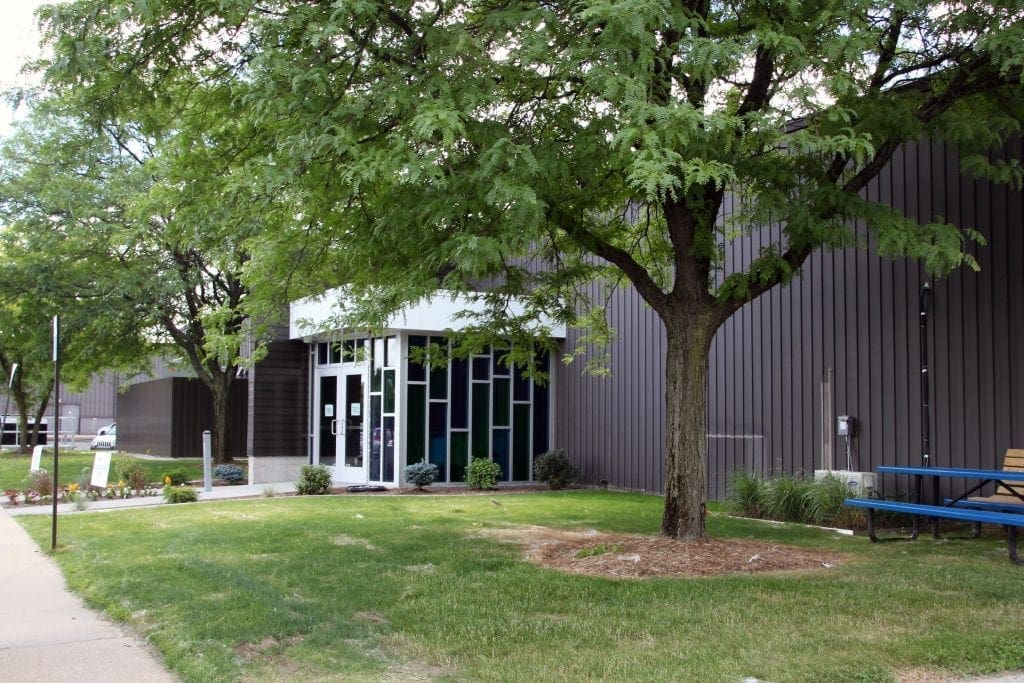Reinforcing its commitment to health equity, Metro Health – University of Michigan Health has started offering COVID-19 vaccinations at its Community Clinic, which focuses on caring for underserved populations.
The Community Clinic, at 781 36th St. SE, near Eastern Avenue, is Metro Health’s first vaccine distribution site outside the main hospital. The site was chosen to expand access to vulnerable groups and to help those hit hardest by the pandemic.

“Many of the patients who rely on the Community Clinic face racial and social disparities that put them at greater risk for contracting COVID-19,” said Lori Price, Chief Operating Officer, Metro Health – University of Michigan Health. “Those same disparities contribute to underlying conditions that can add to the severity of the illness. These patients need and deserve the protection of the vaccine.”
Data from the federal Centers for Disease Control show COVID-19 infection rates, hospitalizations and deaths are disproportionately higher for non-white populations. Studies also show a disproportionate impact on impoverished communities.
These trends are reflected in West Michigan. Nine of the top 10 ZIP codes served by the Community Clinic match the top 10 ZIP codes for COVID-19 cases in Kent County, which make up more than half of the county’s total 47,739 cases as of Feb. 13.
Distribution at the Community Clinic will follow state guidelines for eligibility, and patients will be able to schedule via phone or MyChart. Clinic staff also will reach out directly to the most at-risk patients. After eligible Community Clinic patients have the opportunity to receive the vaccine, the site will open to the general public.
Due to the lack of vaccine, this is Metro Health’s first opportunity to offer the vaccine by Moderna. Like the Pfizer vaccine currently being administered at Metro Health Hospital, the Moderna vaccine was shown in clinical trials to be highly effective across ethnic and racial groups. However, unlike the Pfizer vaccine, the Moderna vaccine does not need to be stored in ultra-cold freezers at the hospital. This logistical advantage enables distribution to the Community Clinic.
The clinic has remained an invaluable community resource throughout the pandemic, maintaining access for safe in-person and virtual care visits. The location is on the No. 3 and No. 4 bus routes for The Rapid, with services designed to serve patients who are underinsured or uninsured, refugees, and those whose first language is not English.
In 2020, 60 percent of clinic patients were from non-white backgrounds, including 34 percent who listed their background as Black or African American and 11.5 percent who listed their ethnicity as Hispanic or Latino. With about 30 languages spoken by patients, 15 percent of office visits required an interpreter, most often for Spanish, Nepali and Burmese.
In surveys, more than half of patients at the Community Clinic said they experienced financial strain in 2020, and nearly a third faced daily stress. Most rely on Medicaid or Medicare for their health care, and some have no insurance.
Metro Health designed the Community Clinic to address these and other challenges faced in the community. In addition to primary care, services include family medicine, internal medicine, obstetrics and gynecology, osteopathic manipulative medicine, general surgery, orthopedics and urology.
The clinic has a multilingual staff and comprehensive services, including social workers and a nurse case manager. Staff helps with Medicaid applications and accessing medication and medical financial assistance. The clinic also provides an emergency food pantry.
“Through these programs and others, like home-visit education to reduce infant mortality, we are working to improve the health and wellbeing of all in our community,” said Price. “Providing access to COVID-19 vaccines is an important part of our work. The only way to defeat the pandemic is by making sure this protection is available to everyone.”